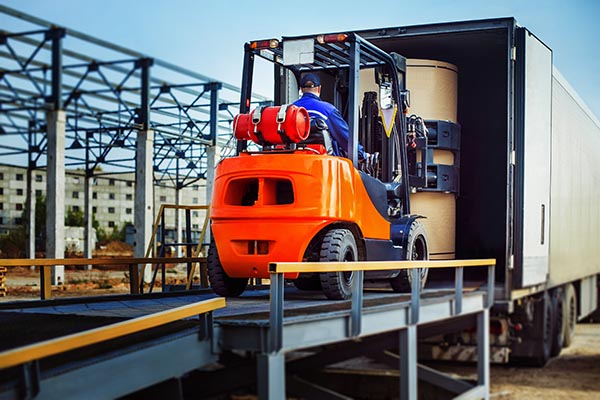If you are the owner of a company that ships products, you probably understand that your freight is the most valuable thing when it is in transit. Unfortunately, cargo can be damaged or lost during transit, leading to a multitude of problems. For example, if you send a shipment by sea and the ship sinks, your carrier liability may not cover the total value of the freight. For this reason, you should consider purchasing cargo insurance. Over time, this insurance can save you a significant amount of money and time if your cargo is damaged or lost.
What Is Cargo Insurance?
When your cargo is lost or damaged, you can lose a considerable amount of money if you do not have insurance coverage. Fortunately, with the right plan you won’t have to worry about suffering such a massive financial loss. Cargo insurance can cover you in the event of vehicle accidents, natural disasters, customs rejection, piracy, acts of war, and cargo abandonment. Such coverage is different from standard carrier liability coverage and other insurance policies that are typically offered by large brokers, agents, freight insurance companies, and freight forwarders.
The main purpose of cargo insurance is to protect shipping companies from financial losses if a shipment is lost or damaged. Once you settle on a policy and enroll, you will be charged a premium, which is a small amount you typically pay each month to maintain your policy.

Forklift is putting cargo from warehouse to truck outdoors
What Are the Benefits of Cargo Insurance?
Sending shipments without insurance can be immensely risky, and in most cases, should be avoided at all costs. Cargo insurance coverage offers many advantages:
- Protection of cash flow from unforeseen stoppages
- Continuation of profits if a shipment is lost or damaged
- Easier loss reporting
- Fast and efficient claims processing
Is Cargo Insurance Legally Required?
Even if it is not required by law in your jurisdiction, it is still wise to purchase cargo insurance. As your freight is transported via different trucks, hands, and ports, there are many risks and external factors you will want to avoid. Issues such as traffic conditions and inclement weather can potentially result in your cargo being damaged, stolen, or lost.
It is important to note that even if the carrier of your freight is liable legally, they may not have enough insurance to cover the full cost of your cargo. The majority of freight carriers are only financially responsible for up to $500 per shipping/package unit or the total value of the goods. Air freight carriers are only responsible for $19 per kilogram. Depending on your cargo, you could still suffer a considerable financial loss if you don’t have insurance coverage.
What Are the Types of Cargo Insurance?
There are two primary types of cargo insurance: land and marine. Land cargo insurance covers cargo that is transported over land by trucks or small utility vehicles. This coverage protects you in the event of a collision, physical damage, theft, and other risks associated with shipping over land. This insurance generally only provides protection for domestic cargo, so when your cargo is shipped out of the country, it may not be protected.
Marine cargo insurance provides coverage for cargo shipped via ocean or air. This type of coverage is typically purchased by companies that specialize in international shipping. Damages caused by weather conditions, unloading/loading, piracy, and other risks are typically covered. There are multiple types of marine cargo insurance policies:
- Open Coverage – This covers freight for a set period of time, almost always a year, and multiple shipments are often covered by one policy. This coverage may be the best option if you ship frequently, and there are two kinds, permanent and renewal. Permanent policies are valid for a specific period and allow for multiple shipments during this time. Renewable policies are renewed once a shipment is delivered, so it is ideal for voyages and single trips.
- Contingency – This type of coverage extends to shipments that are not covered by the customer.
- All Risk – All risk insurance covers new shipments that are not prone to spoiling, loss, or damage.
- Free From Particular Average – This provides coverage as long as the cargo is not partially damaged or destroyed by fire, sinking, collision, or stranding.
- General Average – This basic coverage only provides protection if cargo is partially damaged. You will still be required to pay for others’ coverage even if your shipment manages to survive.
- Warehouse to Warehouse – Coverage is provided for shipments once they are unloaded and in transit to a warehouse.
There are times cargo insurance will not provide coverage. Policies typically exclude damage due to flawed products or improper packaging. Damage to specific types of freight is also excluded.
Learn More About Cargo Insurance
If you need reliable cargo insurance to cover your freight, Rev Insurance is here to help. We provide a variety of insurance types, including cargo insurance, and we can help you find the perfect policy. Get in touch with us today to learn more.